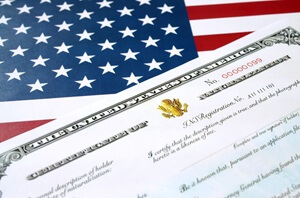Becoming a U.S. citizen is one of the most meaningful milestones for immigrants. It opens the door to voting rights, a U.S. passport, and full participation in civic life. But the road to naturalization involves more than just paperwork, it demands accuracy and timing.
Many applications are delayed or denied because of common, preventable mistakes. Filing errors, missed appointments, or misunderstanding requirements can set you back months. Here, it breaks down the top ten mistakes people make, and how to avoid them so you can confidently move forward.
10 Naturalization Mistakes & Ways To Avoid Them
Applying for U.S. citizenship is exciting, but small mistakes can cause delays or denials. Many applicants overlook key requirements or miss deadlines. Understanding common errors and how to prevent them can help ensure a smoother and faster naturalization process.
Filing With An Incomplete Or Inaccurate Form N-400
The Form N-400 is the starting point for naturalization. USCIS checks every word for accuracy. If applicants misspell their names or dates, which don’t match prior immigration records, expect delays or denials. Even skipped questions can cause problems later in the process.
A small error can snowball into a request for evidence or, worse, a denied application. Using the USCIS online system helps, but don’t rely on it entirely. Use their official instructions to double-check what each question means. Getting professional help can prevent big headaches if you feel stuck or confused.
Failing To Meet Residency Requirements
One of the most misunderstood requirements is residency. Many applicants don’t realize how strict USCIS is about how long you must live in the U.S. “Continuous residence” and “physical presence” are different, and both must be satisfied.
“Continuous residence” means you’ve been living in the U.S. without lengthy interruptions for a set period, usually five years, or three if you’re married to a U.S. citizen. “Physical presence” means you’ve spent enough days here, not just lived here on paper.
Spending more than six months outside the U.S. can break your continuous residence. Applying too early, before hitting the required timeline, can result in automatic rejection. If you’ve traveled a lot, consult an attorney to assess your eligibility or if you need to wait longer.
Preparing Inadequately For The English Language & Civics
The naturalization test includes both English and civics sections. While there are exceptions for older applicants, most people must pass both. Many assume the test is easy, only to be caught off guard at the interview.
The civics portion includes questions about U.S. history and government. The English test involves reading, writing, and speaking. If English isn’t your first language, this can be intimidating, but preparation makes a huge difference.
USCIS provides a study guide and hundreds of free resources online. Practice speaking and writing English at home. Listening to English news or conversing with friends can help improve your fluency. Community centers and libraries often offer citizenship classes.
Forgetting To Register For The Selective Service
If you’re a male between 18 and 25 years old and lived in the U.S. during that age range, you must register for the Selective Service. Forgetting to register is a red flag for USCIS and can block your application. Even if you’re older now, they’ll still check to see if you registered back when you were required to.
Use the Selective Service website and its verification tool to determine if you’re registered. If you’re not registered and still eligible, do it immediately. If you are not eligible anymore, a signed affidavit explaining your situation may help. Failing to register isn’t always fatal to your application, but hiding it does have a severe impact.
Avoiding Financial Obligations
USCIS looks at your moral character when reviewing your application. Unpaid debts, especially taxes or child support, can signal irresponsibility and may result in denial. Financial issues don’t have to stop your application, but you must handle them before applying.
Contact the IRS to set up a payment plan if you owe back taxes. Document everything. Bring proof of the agreement and evidence that you’re making regular payments. It shows you’re taking your responsibilities seriously.
The same goes for child support. Courts take these obligations seriously, and so does USCIS. Even a small amount of unpaid support can raise questions about your moral character during the review. Before filing, request your IRS records and court payment history to give you a clear picture of what USCIS will see.
Hiding Criminal History Or Records
A criminal record doesn’t automatically disqualify you, but hiding it almost always will. USCIS checks your background thoroughly. If you’ve had an arrest, charge, or conviction, disclose it honestly on your application.
If unsure whether an incident qualifies as a “crime,” speak with an immigration attorney. They can explain whether it affects your case and what documentation to include. For many people, the issue isn’t the crime itself, it’s how they handle it.
Missing Deadlines & Appointments
Every part of the process has strict deadlines. Your application could be delayed or denied outright if you miss a biometric appointment or don’t respond to a Request for Evidence (RFE). It sounds simple, but life gets busy. People miss appointments due to work, family emergencies, or even simple forgetfulness.
Set reminders on your phone. Write key dates on a calendar and post them where you’ll see them daily. If you move, update your address with USCIS immediately to avoid missing mailed notices. Respond to USCIS letters quickly. If you’re unsure what they mean, get help right away.
Providing Insufficient Documentation
When applying through a spouse or family member, USCIS wants strong proof of the relationship. Being married or related on paper isn’t enough; you must prove your relationship is genuine and ongoing. You can include joint financial documents, shared lease agreements, photos, etc.
The stronger your evidence, the smoother the process. Tax returns, utility bills, insurance policies, anything showing shared responsibility is helpful. If you’ve been apart for a while, include letters, call logs, or travel records to show you’ve stayed in contact.
If USCIS doubts your relationship, they may schedule a second interview or request more documents. Preparing thoroughly from the beginning can prevent this extra step. Affidavits from friends and family can also help support your case.
Ignoring Legal Advice
Some applicants think hiring a lawyer is unnecessary. They want to save money or believe their case is simple. However, one overlooked mistake can delay or deny your case. Lawyers don’t just fill out forms, they review your entire immigration history and help you avoid red flags.
Legal professionals know how USCIS interprets specific answers and how to respond to potential issues before they become problems. They can also help prepare for questions and review your documents beforehand. They’ll spot inconsistencies you might miss and help you correct them before submission.
Trying to DIY through immigration can be like walking a tightrope without a net. It might work, but if something goes wrong, there’s no backup. Getting help can save time, stress, and money.
Applying Too Early Or Too Late
Timing your application matters. Applying before you’re eligible leads to rejection, wasting time, and money. Waiting too long can cause missed opportunities, such as employment or travel abroad. Remember, it’s not just about how long you’ve had your green card. You must also meet residency, physical presence, and moral character requirements.
Use the USCIS eligibility calculator, but don’t rely on it alone. It doesn’t account for complex travel histories or past legal issues. Delays can also happen if you move frequently or change jobs often. Gather your address and employment history early. That way, you won’t scramble to piece things together at the last minute.
Getting legal assistance can increase your chances of approval. They can also answer your doubts or questions about the process.
Some Questions About Citizenship & Naturalization
Getting U.S. citizenship is a significant step, and it’s natural to have concerns. Many applicants worry about eligibility, travel restrictions, and past mistakes affecting their case. Here are answers to the most frequently asked questions.
What Are The Basic Eligibility Requirements?
To apply for naturalization, you must be at least 18 years old. Depending on your situation, you have held a green card for five years or three if married to a U.S. citizen. You must also meet residency requirements, demonstrate good moral character, and pass an English and U.S. civics test.
Can I Travel While My Application Is Pending?
Yes, but be cautious about long trips outside the U.S. Extended absences can disrupt your continuous residence requirement and lead to complications. If you must travel, avoid leaving for more than six months. Always document your trips to avoid issues with USCIS.
What If I Have A Criminal Record?
A past arrest or conviction doesn’t always mean automatic denial, but some offenses can disqualify you. USCIS carefully reviews criminal history when determining eligibility. If you’ve ever been arrested, charged, or convicted, speak with an immigration attorney before applying.
How Long Does The Process Take?
Naturalization generally takes six to twelve months, but processing times vary. Your local USCIS office workload, background checks, and requests for additional evidence can affect timing. Submitting a complete and accurate application helps avoid unnecessary delays.
Are you still wondering if now is the right time to apply? That’s common. The more informed you are, the more confident you’ll feel. And if anything seems confusing, don’t guess, just ask. Lozano Law Firm has got you covered.
Immigration Lawyer Laredo TX Helps You With Naturalization
At Immigration Lawyer Laredo TX, we help people from all walks of life become U.S. citizens. We’ve worked with green cardholders, spouses, and longtime residents across Texas who are ready to take the next step. Our team accurately prepares your forms and checks your documents against USCIS standards.

You don’t need to go through this alone. Let us walk you through the process with care and clarity. When you’re ready, we’re here to help you become a U.S. citizen with peace of mind.
Naturalization isn’t just about filling out forms, it’s about preparation. Skipping steps or rushing the process can delay or ruin your chances. From missing paperwork to timing issues, every mistake on this list is avoidable if you know what to look for.
Lozano Law Firm helps clients avoid these mistakes every day. Whether it’s reviewing your travel history, explaining the test, or fixing a paperwork issue, we’ve got your back. Call us today if you’re serious about becoming a citizen. We’re ready when you are.




